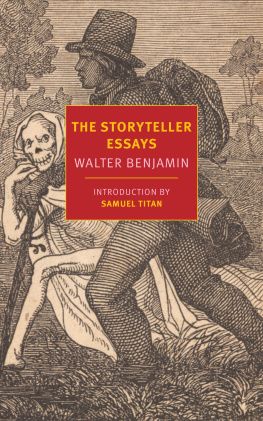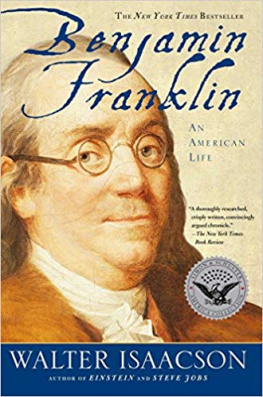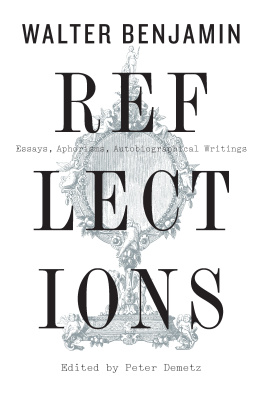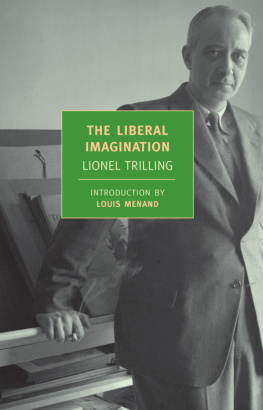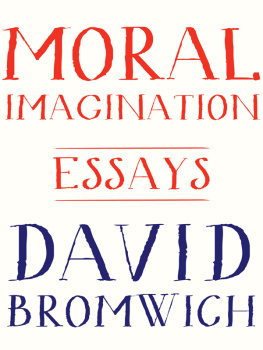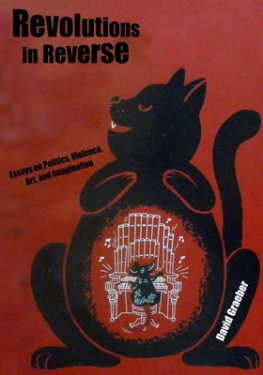Originally published in 1969 by E. P. Dutton & Co., Inc.
Published 2003 by Transaction Publishers
Published 2017 by Routledge
2 Park Square, Milton Park, Abingdon, Oxon, OX14 4RN
711 Third Avenue, New York, NY 10017, USA
Routledge is an imprint of the Taylor & Francis Group, an informa business
New material this edition copyright 2003 by Taylor & Francis.
All rights reserved. No part of this book may be reprinted or reproduced or utilised in any form or by any electronic, mechanical, or other means, now known or hereafter invented, including photocopying and recording, or in any information storage or retrieval system, without permission in writing from the publishers.
Notice:
Product or corporate names may be trademarks or registered trademarks, and are used only for identification and explanation without intent to infringe.
Library of Congress Catalog Number: 2002045196
Library of Congress Cataloging-in-Publication Data
DeMott, Benjamin, 1924-
Supergrow: essays and reports on imagination in America / Benjamin DeMott; with a new introduction by the author,
p. cm.
Originally published: New York: Dutton, 1969.
ISBN 0-7658-0521-9 (pbk.: alk. paper)
1. United StatesCivilization1945-I. Title.
E169.12.D4 2003
973.92dc21 2002045196
ISBN 13: 978-0-7658-0521-8 (pbk)
NOTE : The essays in this book appeared originally (in some instances under different titles or in different form) in The American Scholar, Antioch Review, Book World, Educational Record, Esquire, New American Review, The New York Times, Saturday Review, and The Urban Review.
HOW TO RAISE A BRIGHTER CHILD (excerpt): 1967 by Joan Beck. Reprinted by permission of Simon & Schuster, Inc.; GIVE YOUR CHILD A SUPERIOR MIND (excerpt): 1966 by Siegfried and Therese Engelmann. Reprinted by permission of Simon & Schuster, Inc.; Excerpt from poetry of Joel Oppenheimer: THE LOVE BIT. 1962, Joel Oppenheimer. Published by Corinth Books, New York; Excerpt from UNDERSTANDING MEDIA by Marshall McLuhan: From UNDERSTANDING MEDIA by Marshall McLuhan. 1964 by Marshall McLuhan. Used with permission of McGraw-Hill Book Company ; Excerpt from W. H. Audens Lullaby: 1940 and renewed 1968 by W. H. Auden. Reprinted from collected shorter poems 1927-1957 by W. H. Auden by permission of Random House, Inc.; Florida Road Workers by Langston Hughes: From the panther and the lash by Langston Hughes. 1967 by Arna Bontemps and George Houston Bass. Reprinted by permission of Alfred A. Knopf, Inc.; Life Story by Tennessee Williams: Tennessee Williams, in the winter of cities. 1956 by Tennessee Williams. Reprinted by permission of New Directions Publishing Corporation; Merritt Parkway by Denise Levertov: Denise Levertov, the jacobs ladder. 1958 by Denise Levertov Goodman. Reprinted by permission of New Directions Publishing Corporation.
To Joey
Tom
Benj
&
Megan
Love from the old man
Rereading this book I remember bits of the experiences in which it originatedmoments left out or glancingly treated that grew more resonant with time. An evening, for instance, outside a bar/beer store in the town of West Point, Mississippi in the summer of 1966.1 had just come south to teach black kids who were about to enter integrated schools (see Mississippi Learning). Plane from Hartford to Memphis, down the road in a rented car to Mary Holmes Junior College in West Point, some nervousness on the way. (Orientation materials had passed the word that state police trailed strangers from the north and I kept thinking I saw them.)
I was frazzled, hungry, and in no mood for errands when I found the college, but the rules of the tutoring project designated the most recently arrived volunteer as that nights beer manit was up to me therefore to make a trip back to town in the college station wagon to pick up sixpacks. On the way out somebody advised caution because townies were given to firing BBs and throwing rocks and pop bottles at the wagon as it passed.
West Point equaled a muddy Main Street with a covered boardwalk running on one side in front of a row of three or four rickety stores and a bar. I parked, went in the bar, bought the beer, and returned to the campus without incident. No drama, no shots fired. Just this moment Im remembering now, as Ive done often in the last almost forty years.
As I was parking I noticed a black man and his wife (baby in her arms) on the boardwalk peering in the window of the bar. It was dark but still hot and I was sweating. I stood with the car door open drying my hands and face on a handkerchief. Engrossed in the show, the TV watchers didnt look my way. When I shut the car door, though, things happened. The black man jumped. He turned, bobbed his head toward me, and in a single movement swept wife, child, and himself from the covered boardwalk onto the muddy street. A single swooping movement. I see this movement clearly as I write and, in memory, as I say, Ive seen it often before. It shocked and outraged me. I understood at once, of course, that fear, deference, and knowledge of the odds figured in this seemingly frightened movement. The odds were unreckonably high against the possibility of a civil greeting being offered to a black man showing uppityness by standing motionless in an oncoming white strangers path.
What took longer to grasp concerned not race relations but relations between past fact and present identityhistory, in other words. I had a glimmer in those few seconds, a chance to learn. History never afterward talked louder to me. No war, death, passing of a baton, interview with greatness at the White House, afternoon in a hushed library with a volume of Shakespeare marked up by John Keatsnothing ever homed me in so directly on the weight of the past. The instinct that told the black man to move wife, child, and himself in a hurrydemanding that he project fear and powerlessness toward a threathad little to do with traits of individual character. The same held for my reaction of shock and outrage at the behaviorat the assumption that I meant harm to another human beingthat implicitly arraigned me. There was no me. No more than he saw a particular white did I see a particular black. Oppression, resistance, humanitarian idealismHistorical Forces drain selfhood away. Were lost in them as the sleeping baby in the mothers arms was lost in the mans panicky movement over the boardwalk into the mud, prized identities (including that of the outraged individual do-gooder, me) weightless in the face of the incomprehensibly massive Yesterday. As for the glimmer I mention: it was simply that there are many agents big and small out there waiting to put you in your place, and history is far the biggest.
This idea stayed vivid for some seconds back at our trailer headquartersuntil I awoke as beer man and commenced banging on the metal door with the Blue Ribbon. Intermittently since, it comes clear again. When this happens its like being goaded by a serious teacher into stretching myselftold to widen my outlook and raise the level of my game.
* * *
Other bits of past experience brought back by rereading the book have an oddly energizing effect Theyre reminders of moments when one or another intimidating challenge worked, by a paradox, to fend off selfpity and feelings of personal inconsequence. Theres a paragraph in this books title essay about children in a ghetto classroom killing time at assignments they dont understand:



